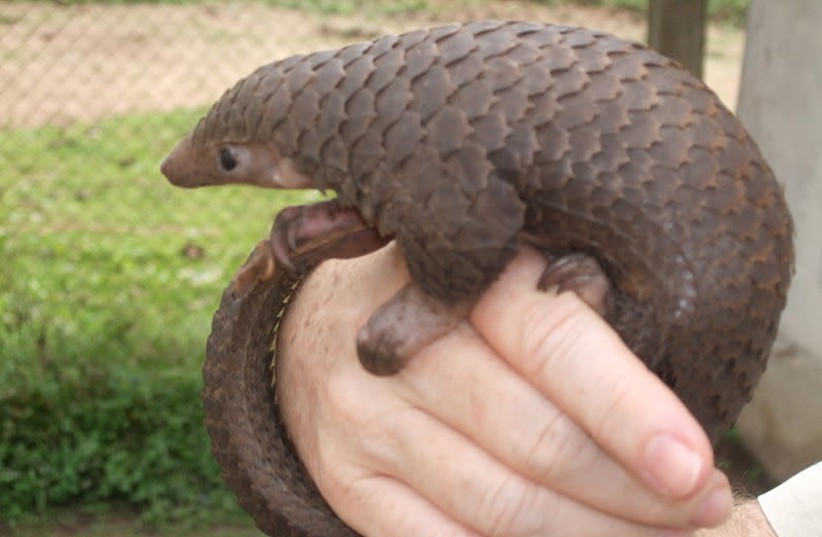Preserving Wild Animal Populations From Extinction
"[Reporting the results of four visits to Mong La] the wildlife trafficking capital of the world [the writers] observed 42 bags of scales, 32 whole skins, 15 fetuses or pangolin parts in wine, and 27 whole pangolins for sale."
Global Ecology and Conservation
"If we heed the warning not only will we protect human life but we could actually save species like pangolins."
Peter Kights, CEO, WildAid
"The problem is not the animals, it's that we get in contact with them."
Sara Platto, professor, animal behaviour, Jianghan University, Wuhan
"If the illegal animal trade was at the root of this outbreak, it is going to be really difficult to trace, and I suspect most of the evidence is gone already – destroyed or spread out across the black market."
"People aren't going to want to talk, because of the consequences [of the illegal trade and consequent penalties."
Texas A&M University virologist Benjamin Neuman
 |
| Wildlife such as the pangolin, a scaly ant-eating mammal, could be the b eneficiaries of the recent coronavirus outbreak, which is believed to have begun with the consumption of wild meats. Getty Images |
Pangolin meat, characterized as "dark with a sticky, stringy texture" is a sought-after dinner table delicacy in some areas of the world. There are claims that pangolin scales which cover the body of the small creatures -- keratin, like human fingernails, and rhinoceros horns are useful in treating a wide range of ailments, from infertility to rheumatoid arthritis making them a sought-after ingredient in traditional medicine and folk remedies.
It is difficult to change cultures, all the more so when they have the staying power and influence of tradition. That the South China Morning Post reported in 2018: "There is no scientific evidence showing that pangolin scales are effective as a treatment" may appeal to rational intelligence is expected, but at the same time there is nothing either rational or intelligent in beliefs based on faith in tradition.
Two continents, Africa and Asia, play host to eight species of pangolin, all known to be vulnerable or critically endangered. Despite being considered a protected species through international trade law, a million of their number has been trafficked in the past decade, according to the World Wildlife Fund. A short while ago, 9,500 kilograms of pangolin scales were seized by officials from shipping containers in Nigeria, representing a likely 20,000 animals taken from the wild.
A trade ban has been in place since 2017, and shipments such as that violate the ban, an occurrence that is becoming more common, representing organized criminal networks expanding their business from ivory to pangolins. Scientists, in view of the current epidemic of COVID-19 and the new and growing threat of zoonotics -- viruses leaping from wild animals to humans -- suspect pangolins may have been the source of the new coronavirus.
Nature recently reported "So far, the closest match to the human coronavirus has been found in a bat in China's Yunnan province". The quote above from the journal Global Ecology and Conservation, represents a finding by researchers Vincent Nijman, Ming Xia Zhang and Chris Shepherd when they took stock of what was popularly for sale at the Mong La wildlife market, located on the border of southwestern China and Shan State in Myanmar where pangolin wine is seen for sale.
The researchers had estimated that pangolin products were valued at close to a million a year sold in Myanmar, but fetched much higher prices once the forbidden goods crossed into China "where prices of pangolins and their parts have risen considerably over the last decade". The World Wildlife Fund estimates the value of wild species trafficking as a whole to be roughly $20 million in annual value.
The timid, scaly pangolin is thought to be among the most highly poached mammals in the world. The animal had been implicated in the coronavirus outbreak earlier in the month by researchers at the South China Agricultural University. According to the experts there, pangolins appear to be the intermediary in the virus jump to humans, but "the mystery is far from solved", reported Nature.
"I do think the government has seen the toll it takes on [the] national economy and society is much bigger than the benefit that wild-eating business rings", observed Jeff He, China director at the International Fund for Animal Welfare. In a move to halt the spread of the coronavirus, officials in China have issued an order to ban all consumption of wild animal meat, inclusive of pangolins, peacocks, civets, turtles and badgers.
Should such an order be brought into permanent legislation, after the emergency fears of viral contamination leading to COVID-19 infection, it would repesent a great leap forward for the preservation of animal species now threatened with extinction resulting from the voracious appetite in China for exotic animal species, but it would require a commitment on the part of the government to expunge this particular tradition from its cuisine and pharmacological culture.
 |
Pangolins, the most trafficked mammal in the world after humans, could be the cause of the coronavirus outbreak.
(photo credit: Wikimedia Commons)
|
Labels: Animal Exploitation, China, Exotic Cuisine, Extinction Threats, Phamaceuticals, Wild Animal Trade, Zoonotics

0 Comments:
Post a Comment
<< Home